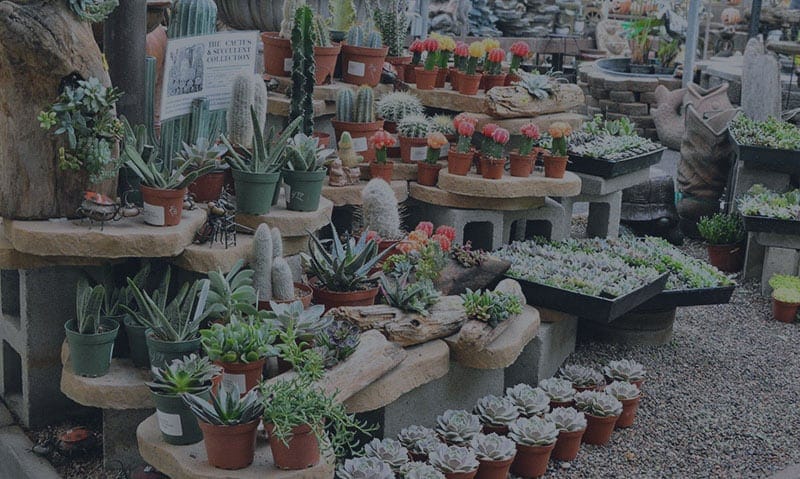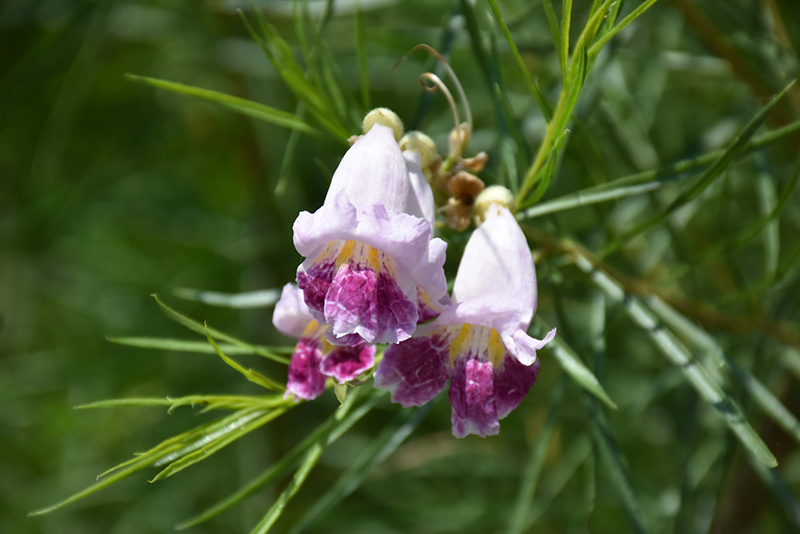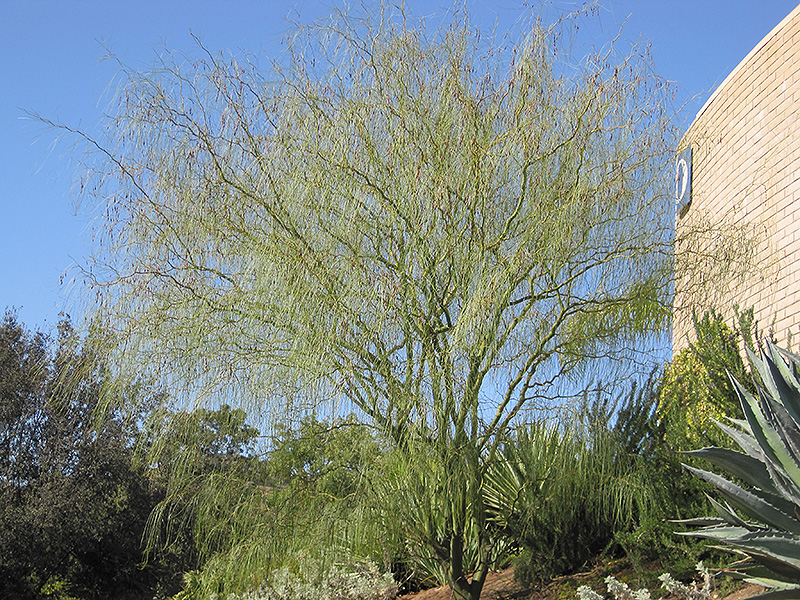Height: 30 feet
Spread: 30 feet
Sunlight:
![]()
![]()
Hardiness Zone: 6b
Description:
A multi-stemmed tree that can be trained to a single trunk; a beautiful specimen tree that flowers in late spring and is long blooming; gracefully weeping pods follow, and persist well into winter; drought tolerant, watering should be deep and infrequent
Ornamental Features
Desert Willow features showy clusters of white trumpet-shaped flowers with hot pink overtones and yellow throats at the ends of the branches in late spring. The fruits are showy white pods carried in abundance from mid summer to late winter. The fruit can be messy if allowed to drop on the lawn or walkways, and may require occasional clean-up. It has emerald green deciduous foliage. The narrow leaves do not develop any appreciable fall color.
Landscape Attributes
Desert Willow is a multi-stemmed deciduous tree with an upright spreading habit of growth. Its relatively fine texture sets it apart from other landscape plants with less refined foliage.
This tree will require occasional maintenance and upkeep, and should only be pruned after flowering to avoid removing any of the current season's flowers. Deer don't particularly care for this plant and will usually leave it alone in favor of tastier treats. Gardeners should be aware of the following characteristic(s) that may warrant special consideration;
- Self-Seeding
Desert Willow is recommended for the following landscape applications;
- Accent
- Shade
- Hedges/Screening
Planting & Growing
Desert Willow will grow to be about 30 feet tall at maturity, with a spread of 30 feet. It has a low canopy with a typical clearance of 1 foot from the ground, and is suitable for planting under power lines. It grows at a medium rate, and under ideal conditions can be expected to live for 50 years or more.
This tree does best in full sun to partial shade. It is very adaptable to both dry and moist growing conditions, but will not tolerate any standing water. It may require supplemental watering during periods of drought or extended heat. It is not particular as to soil pH, but grows best in sandy soils. It is somewhat tolerant of urban pollution. This species is native to parts of North America. It can be propagated by cuttings.



